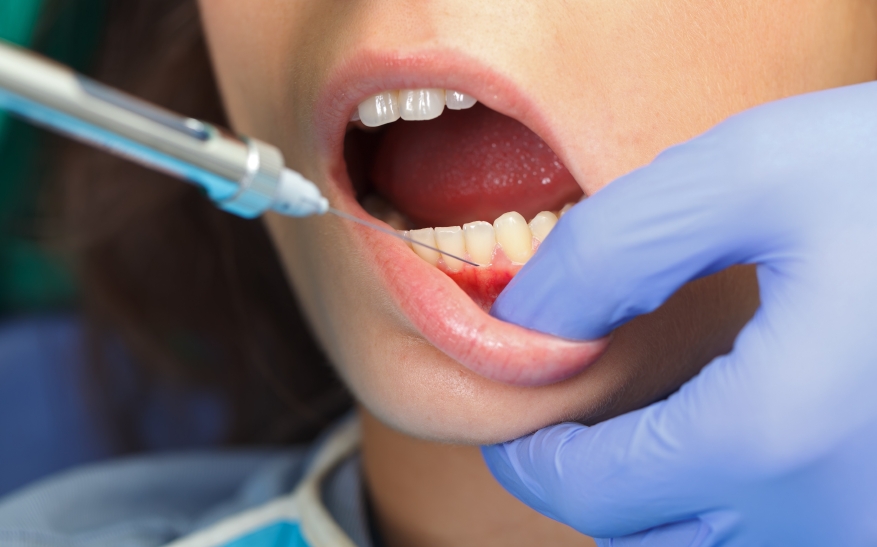Novocaine: A Brief History
Novocain®, also known by generic name procaine hydrochloride, is a local anesthetic that was created by German Chemist Alfred Einhorn in 1905. Generically referred to as novocaine or novacaine, it was the first injectable man-made local anesthetic used. And while novocaine is still used, many dentists have replaced it in favor of newer numbing agents such as Lidocaine (also a local anesthetic, Lidocaine is a faster-acting and longer-lasting local anesthetic than procaine).
Numbing the Pain
Novocaine is used to suppress pain in conscious patients. This agent is administered by your dental professional at the dental office. Novocaine is given via an injection near or in the problem area of your mouth. Generally, novocaine takes less than five minutes to take effect; similarly, the effects of novocaine don’t normally last more than 15 minutes. Your dental professional will determine the dosage amount that’s correct for you, but one shot of this drug is normally enough to keep you numb through the duration of any common dental treatment.
Novocaine is used alone or in tandem with other agents. Once novocaine does take effect, the injection site and a small surrounding area will feel numb. Due to the numbing effect, you shouldn’t feel pain while your dentist performs simple and common procedures. If you’re prone to dental anxiety or a fear of needles, your dentist may give you nitrous oxide (an inhalant commonly known as laughing gas). Nitrous oxide may help decrease your fear and act as a very light form of sedation dentistry.
Making an Informed Decision
Your dentist will determine if novocaine is the best option for you. Make sure you provide as much information about your medical history as possible so you and your dentist can make an informed decision. Novocaine is a good option for some but not a good option for others. In some cases, a dosage adjustment or monitoring is required.
Let your dentist know if you have or are currently experiencing any of the following:
- Liver problems
- Heart problems
- Bleeding or blood-clotting problems
- A neuromuscular disease such as myasthenia gravis
- Other serious medical conditions
It’s important to note that it’s not known whether novocaine is harmful to unborn babies. For this reason, this anesthetic should not be used without thoroughly discussing your particular situation with your doctor. If you could be pregnant, tell your doctor. It’s unknown whether novocaine passes through breast milk; if you are nursing, let your doctor know so he or she can determine if this agent is right for you.
Side Effects of Novocaine
It’s recommended that you stop using novocaine and seek emergency medical attention or contact your doctor immediately if you experience any of the following rare but serious side effects:
- An allergic reaction (difficulty breathing; closing of the throat; swelling of the lips, tongue or face; hives)
- Chest pain
- Slow or irregular heartbeats
- Dizziness or drowsiness
- Nausea or vomiting
- Trembling, shaking or seizures (convulsions)
It’s more than likely that if you do experience an unwanted side effect, it won’t be of a serious nature. However, these less-serious effects are likely to occur than the serious cousins. Numbness, tingling or minor pain at or around the injection site are all common side effects but in most cases, are not life threatening. If side effects other than those listed occur, speak with your doctor as soon as possible. Always make sure, too, that you tell your doctor about any medications you’re taking, as certain medications may not mix well with novocaine.

